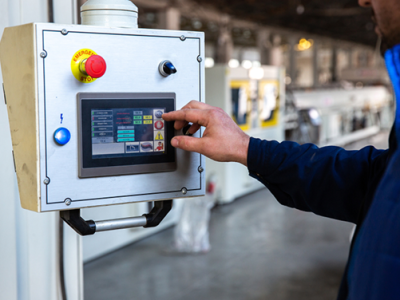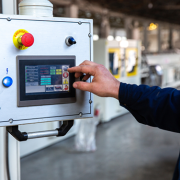With the rise of Human Resource Management Systems (HRMS), companies are increasingly automating traditional HR tasks. From handling payroll and managing employee benefits to recruiting and performance evaluations, HRMS platforms are transforming the way HR departments operate. But as these systems take over more and more tasks, a question naturally arises: Are HRMS platforms slowly making HR professionals obsolete?
What Does HRMS Technology Do Well?
HRMS platforms have become invaluable for their ability to streamline administrative tasks. Here are a few ways they make a big impact:
- Automation of Routine Tasks. One of HRMS’s biggest strengths is automating repetitive tasks, like payroll processing, benefits administration, and time tracking. Handling these tasks efficiently helps HR teams save countless hours and reduce the risk of errors.
- Centralised Data Management. HRMS platforms allow all employee data to be stored and managed in one place. This makes it easy for HR teams to access information quickly, generate reports, and ensure compliance with labour laws and regulations.
- Recruitment and Onboarding. Many HRMS platforms now offer recruitment tools that help HR teams source, screen, and manage candidates. Some even use AI to match candidates to job roles, helping companies find the best fit faster.
- Performance Tracking and Analytics. HRMS tools can monitor employee performance data and provide insights into workforce productivity, engagement, and satisfaction. Giving HR teams a clearer picture helps inform decisions about promotions, training needs, and employee retention.
With these strengths, it’s easy to see why so many businesses are turning to HRMS technology. But does this mean HR professionals are no longer needed?
The Limits of HRMS: Why Humans Still Matter
While HRMS technology is powerful, it has limitations—especially when it comes to the human side of HR. Here are some areas where HR professionals continue to add value:
- Handling Complex Employee Relations. HRMS can track employee metrics, but when it comes to sensitive issues, like conflict resolution, employee grievances, or layoffs, a human touch is essential. HR professionals have the empathy and communication skills necessary to handle complex situations with care.
- Building Company Culture. Company culture plays a huge role in employee satisfaction and retention, and HR professionals are key to fostering this. Through team-building activities, recognition programs, and open-door policies, HR teams build relationships that make employees feel valued and supported—something that a system alone can’t achieve.
- Adapting to Individual Employee Needs. Employees are people, not data points. While HRMS can provide insights, HR professionals interpret these insights with empathy and nuance. They are equipped to provide personalised support, whether it’s helping an employee navigate a personal issue, developing career plans, or adjusting to remote work.
- Strategic Planning and Leadership Development. HR professionals play a critical role in aligning HR policies with broader business goals. From workforce planning to leadership development, HR teams are involved in long-term strategies that drive company growth. These complex, forward-thinking tasks are still out of reach for even the best HRMS systems.
Potential Risks: What Happens When HR Is Over-Automated?
While HRMS platforms are beneficial, over-reliance on automation could lead to unintended consequences. If HR departments become too focused on technology, there’s a risk of neglecting the personal side of HR. Employees may feel disconnected or overlooked, leading to lower engagement and satisfaction.
For instance, relying solely on an HRMS to assess performance can lead to a narrow view, where only quantitative data is considered. The qualitative aspects of an employee’s contributions like their teamwork, attitude, and leadership potential may not be fully captured by data alone.
HR professionals provide the insight and context to ensure that employees are evaluated fairly and comprehensively.
Can HRMS and HR Professionals Work Together?
Rather than replacing HR professionals, HRMS technology can actually empower them. Automating administrative tasks frees up time and allows HR teams to focus on more strategic, people-centred aspects of their work.
Here’s how the synergy can benefit companies:
- Enhanced Efficiency. With HRMS taking care of routine tasks, HR professionals have more time to focus on meaningful interactions and high-impact work. This combination of technology and human skills increases efficiency without sacrificing the personal touch.
- Better Data-Driven Decisions. HRMS provides data insights that help HR teams make more informed decisions. HR professionals can interpret this data, consider the human factors involved, and apply it in a way that enhances employee experience.
- Agility in Adapting to Workforce Trends. As workplace expectations shift, HRMS platforms help track these changes, while HR teams use their expertise to implement necessary policies, create flexible work arrangements, and support employee well-being.
Final Thoughts
The future of HR isn’t about choosing between technology and human expertise, but it’s about finding a balance. HRMS platforms are powerful tools that streamline processes, improve accuracy, and enhance data management, but they aren’t replacements for the human insight, empathy, and strategic thinking that HR professionals bring to the table.
As companies continue to embrace technology, HR professionals can evolve alongside it—using HRMS to handle the “how” so they can focus on the “why.” In the end, HRMS isn’t making HR professionals obsolete; it’s making them more effective, giving them the tools to focus on what matters most: the people.









Comments